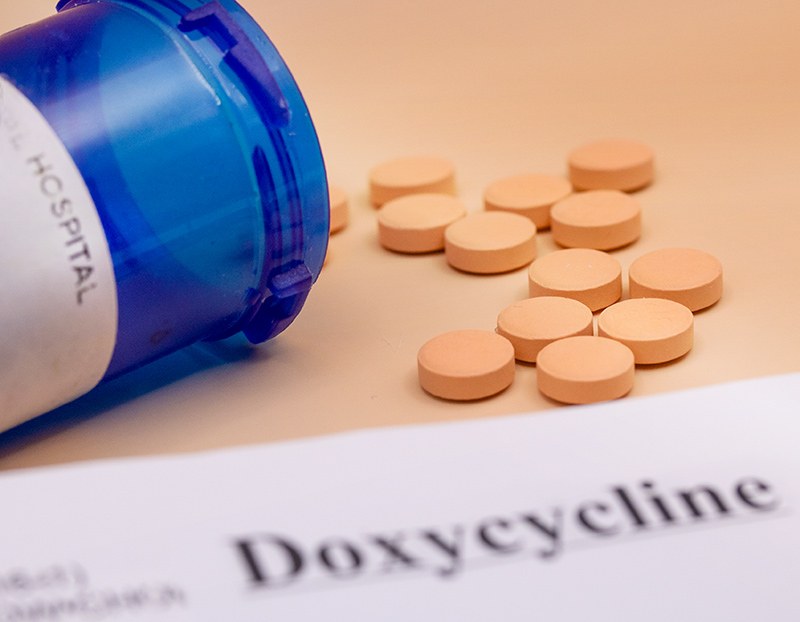SMYAL’s Sultan Shakir: If you’re sexually active, get tested. Here’s why.
How a slight eye pain revealed an untreated syphilis diagnosis.

Two weeks ago, I was admitted to George Washington University Hospital following three days of what I would describe as a slight pull behind my left eye and degenerating eyesight.
It wasn’t until after an emergency optometrist appointment, a five-hour visit to the emergency room, and an MRI that the optometrist diagnosed me with a papilledema, or a swollen nerve in the back of my eye. The cause? Syphilis.
What followed was a four-night stay in the hospital, continued tests, more MRIs, a painful lumbar procedure where they pulled fluid out of my lower spine to rule out a multiple sclerosis diagnosis, and, now, two weeks of carrying around a backpack with a machine administering penicillin every four hours.
I consider myself well-informed on all facets of sexual health; arguably more than your Average Joe (or Jane). I’m an educated, 38-year-old, African-American, cisgender gay man, living in a metropolitan city with a supportive LGBTQ community and resources and services all around me. As the executive director of SMYAL — a local nonprofit supporting LGBTQ youth in the Washington, Maryland and Virginia areas — I lead a team of incredible professionals who educate and provide sexual health resources and services to this community.
And yet here I am, with a PICC line pumping antibiotics straight into my heart for the next two weeks because of undiagnosed, and thus untreated, syphilis.
Given the important work that SMYAL does on sexual health, STI prevention and education, I felt it was prudent to share my diagnosis and my experience in hopes of continuing to minimize any stigma, to also inform, and to ultimately push everyone to continue regular STI testing.
According to the CDC, syphilis rates in the Washington, D.C. area have increased every year since 2014 and more than doubled from 2016 to 2017. The majority of syphilis cases are gay and bisexual men and it can remain symptomless for prolonged periods of time until, like in my case, it goes untreated for months and results in a hospital visit — or worse.
Just two months prior, my regular STI check-up came back negative — or so I thought. What was presented as a negative syphilis result in December turned out to actually be a “false positive.” During this process, I learned what exactly that means. A false positive diagnosis is common in the first 90 days of contracting syphilis. So, my syphilis went untreated for months with no signs of symptoms until my optometrist was sending me to the emergency room, “today, not tomorrow.”
I could have had it since October and, as the doctors explained, it could have crossed the blood and brain barrier. My mind was racing, I was sad. The more I would searched online, the more my concerns grew: Had it really reached my brain? Was it in the neurosyphilis stage? Will my eyesight ever return to normal? Will this pain go away?
And for me, this couldn’t have happened at a more inconvenient time. I was in the midst of working on an important and rare grant for the organization and SMYAL’s quarterly board meeting fell right in the middle of my hospital stay.
But inconvenience is the least of anyone’s worries when it comes to this. Without treatment, syphilis can be life-threatening. It can permanently damage your brain, heart, and other organs.
As for me, the peripheral sight on the far edge of my left eye is all but gone and things get hazy as they come towards central vision. It’s unclear if my vision loss is reversible. In the meantime, I’ve decided to remain optimistic, stop searching online, and give a name to my new penicillin backpack: Deloris.
I share this not to only introduce you to Deloris, but to urge everyone to take control of their sexual health — regardless of age, gender identity, race, sexual orientation, or relationship status. If you’re sexually active, in a monogamous relationship, open relationship or anywhere in between, your health is your responsibility.
The DC Health and Wellness Center, Planned Parenthood, Whitman-Walker Health, and others offer on-site testing with same-day results. Take control by taking advantage of these resources.
Sultan Shakir is the Executive Director of SMYAL (Supporting and Mentoring Youth Advocates and Leaders), an organization that works to support and empower LGBTQ youth in the Washington, D.C., metro area.
The opinions expressed in Forum do not necessarily reflect those of Metro Weekly or its employees. Add your voice to Forum. Learn how at www.metroweekly.com/forum.
Support Metro Weekly’s Journalism
These are challenging times for news organizations. And yet it’s crucial we stay active and provide vital resources and information to both our local readers and the world. So won’t you please take a moment and consider supporting Metro Weekly with a membership? For as little as $5 a month, you can help ensure Metro Weekly magazine and MetroWeekly.com remain free, viable resources as we provide the best, most diverse, culturally-resonant LGBTQ coverage in both the D.C. region and around the world. Memberships come with exclusive perks and discounts, your own personal digital delivery of each week’s magazine (and an archive), access to our Member's Lounge when it launches this fall, and exclusive members-only items like Metro Weekly Membership Mugs and Tote Bags! Check out all our membership levels here and please join us today!























You must be logged in to post a comment.